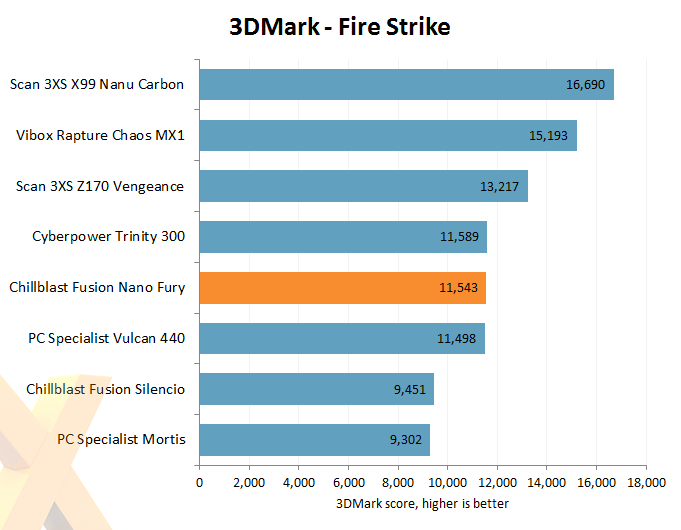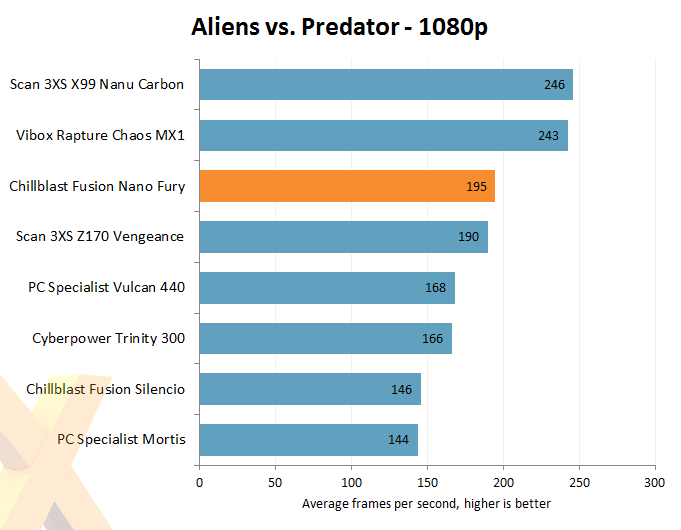Benchmarks: Gaming


Chillblast's PC is all about showcasing the wares of AMD's Radeon R9 Nano and the GPU struts its stuff in our 3DMark and Aliens vs. Predator benchmarks. It's equivalent to getting the performance of a GeForce GTX 980 in a very compact form factor, but might it have been faster still?
When you consider that the R9 Nano is essentially a smaller, lower-clocked alternative to the top-of-the-range Radeon R9 Fury X, you could be forgiven for expecting a 3DMark score in the region of 13,000. That isn't the case, however, as AMD's mini-ITX marvel is only able to downsize by taking a liberal approach to core frequency. Though the GPU is specified at 1,000MHz, our benchmark logs reveal that it never actually hit such heights during our tests and instead oscillated between 840MHz and 900MHz.
Gaming Performance (Average FPS) |
||||
|---|---|---|---|---|
| Game | Quality Settings | FHD (1,920x1,080) |
QHD (2,560x1,440) |
UHD (3,840x2,160) |
| Alien: Isolation | SMAA-T2x, Maximum Quality | 145.0 |
101.0 |
55.8 |
| Middle-earth: Shadow of Mordor | Ultra Quality Preset | 92.6 |
72.3 |
41.0 |
| Total War: Rome II | Extreme Preset | 69.3 |
43.7 |
21.5 |
The reduced operating speed is an inevitable trade-off in the mini-ITX form factor, but take nothing away from the Radeon R9 Nano, it remains a potent part and delivers serious gaming potential. Running a few modern titles with maximum image quality settings, we found the Fusion Nano Fury to be overkill for full-HD gaming - it takes a 2,560x1,440 display (or higher) to realise the full capabilities of the system, and in some titles even 4K gaming isn't out of the question.









